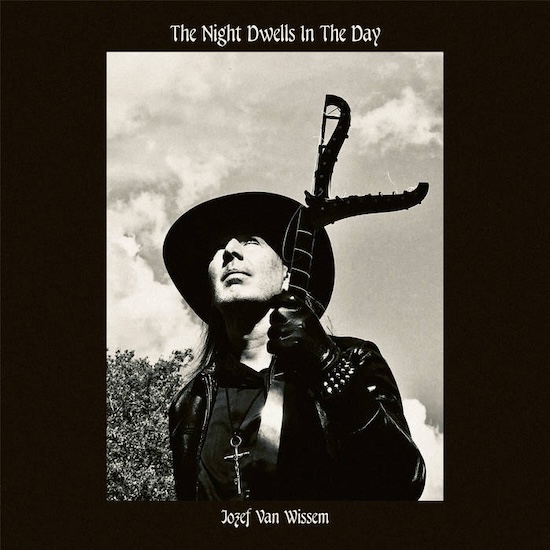Musicologist Curt Sachs described the lute as “composed of a body and of a neck which serves both as a handle and as a means of stretching the strings beyond the body.” We could apply a metaphorical twist to Sachs’s words whilst listening to Jozef Van Wissem’s latest record, The Night Dwells in the Day. Here, Van Wissem does indeed stretch the strings beyond the body, managing, again, to transport us to where he can affect us most.
Those unfamiliar with Jozef Van Wissem’s music may be forgiven for thinking that recording one lute-heavy long player after another is a harmless esotericism, an acoustic form of kintsugi. His credo, “the lute is eternal,” sees him ferret out forgotten words and notations to reshape them in a body of work that will steadily grow until the Limburger pops his clogs. But The Night Dwells in the Day is further proof that Van Wissem’s work is a very contemporary music, one that forcefully bends ancient traditions to the wavelengths of the anthropocene.
Describing this album is a futile exercise. We know we will hear a set of beautiful compositions played by a solo lutenist, sometimes given another perspective courtesy of a guest artist. The sonic range is set, though there are beats underpinning some tracks. Just don’t expect battalions of lutes, marshalled, Rhys Chatham style, into a wave of sound. Or a trip-hop remix. Saying the record was composed during lckdwn doesn’t transfer the same emotional, artistic weight as it once did; our senses have moved on to be desensitised by something else.
But there is plenty to adore in The Night Dwells in the Day. We hear stately pieces formed by crystalline structures, such as ‘The Devil is a Fair Angel and The Serpent a Subtle Beast’, or ‘Slowly The Rays of Daylight Fade’. Elsewhere, the droney ‘In Exile Here We Wander’ fleetingly reminds one of a La Monte Young meditation. Key track ‘The Call of the Deathbird’ is rightly unsettling. It’s a shame that Hilary Woods’s voice isn’t higher in the mix as the interplay against Van Wissem’s husk-like raspings suggested an untapped higher unity.
After letting this record shape and soften the assault of the everyday, I am convinced Van Wissem is missing a trick. His music creates tessellate patterns in the ether around us, ordered space where we moderns can attain “mindfulness”. He could pitch his music as the ultimate form of synthemesc. Streaming services would oblige, more denari to them. How about ‘Lutes To Relax To As the World Ends’, a suitably Ballardian title for a soundtrack to our current Atrocity Exhibition where – to mangle a real Jim Ballard line – today’s horrors are tomorrow’s algorithms.


